Home trends for 2024: 10 things that are in (and 10 that are out)
From baby boomers to Gen Z: how is modern life influencing the way we use our homes?

Rose & Grey
Much like fashion, home trends come and go and are significantly influenced by our changing lifestyles – and there has perhaps been no greater behavioural shift than the post-Covid one. Along with hybrid working, the rising cost of living has further influenced the way we interact with our homes, while social media platforms, such as TikTok, have revolutionised how many of us discover new home hacks and ideas. So, how have the changes we've made in our lives affected what we buy and use in our homes, and how does this differ between the generations? Read on to find out what's set to be hot in 2024 and what's fallen out of favour with the next generation...
Shaping the way we live
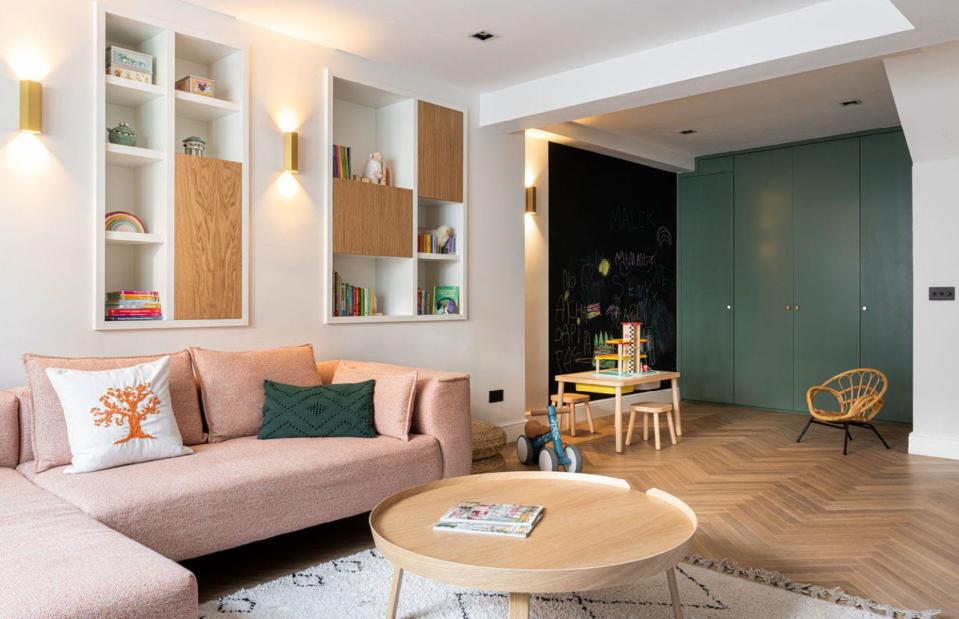
Havwoods
British homeware store, Lakeland, has conducted its annual Trends Report, which aims to discover what's en vogue when it comes to our homes, including what trends have emerged or gone from strength to strength in the last 12 months and how our spending habits have changed as a result of social and economic circumstances. For the report, Lakeland polled 3,000 people and analysed customer behaviours to discover the state of the nation's homes – and the results are interesting!
Younger and wiser?
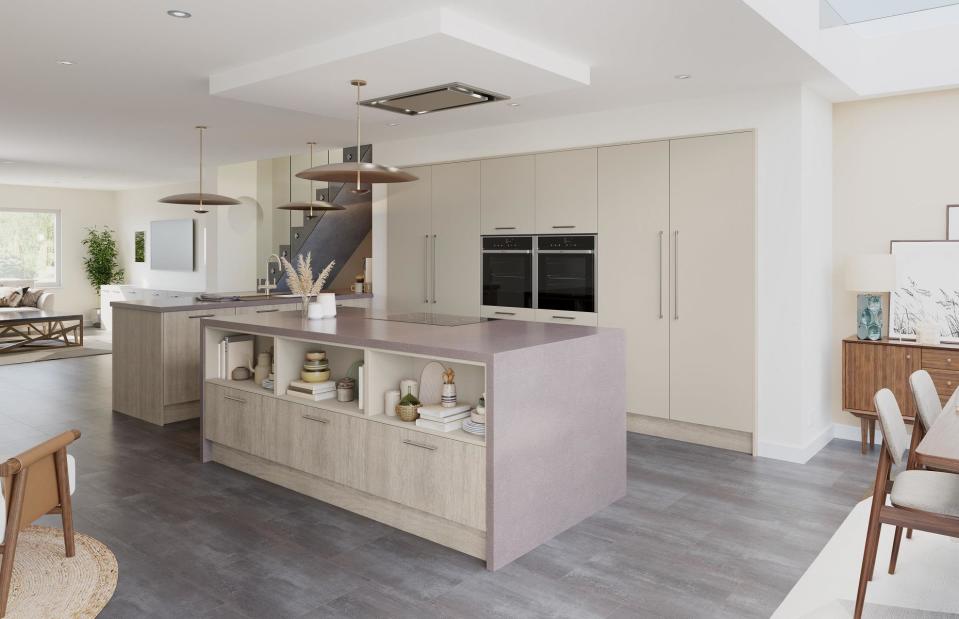
Crown Imperial
According to the survey, 91% of people have been hit by the cost of living crisis in some way and well over half (57%) said they have had to make some form of sacrifice because of it. Interestingly, the report found that the younger generations are doing things differently in a post-Covid world, ditching inefficient appliances and embracing money-saving hacks and zero-waste lifestyles. So, let's explore the 10 things Brits are loving right now, that are helping us reduce bills and waste, and embrace a better work-life balance...
IN: Saving energy
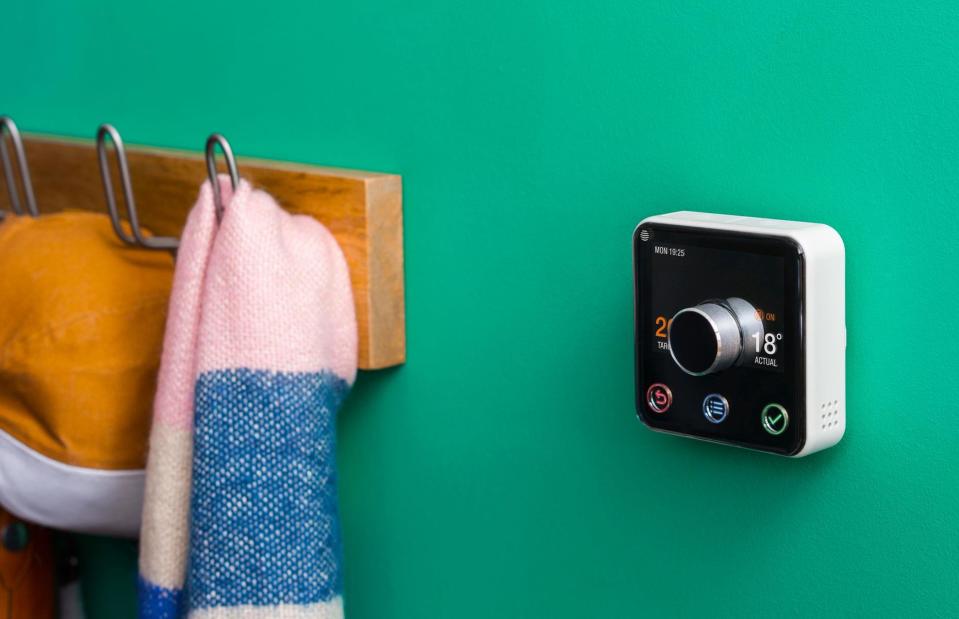
HIVE
Right now, Brits are focused on saving energy and it's no wonder, with the average electricity bill in the UK currently standing at £738 per year, according to USwitch. The cost of gas and electricity has sky-rocketed over the last 12 months and Lakeland discovered that this has led to homeowners choosing to embrace a colder home. Last year, 56% of people turned down their thermostats, but this year the figure climbed to 62%, with 57% stating they reach for a jumper instead of turning up the heating. "Turning off lights may be easy to do, but it saves relatively little money and energy. Turning down the heating is harder to do but makes a far bigger impact," Lakeland explains.
IN: Working from home
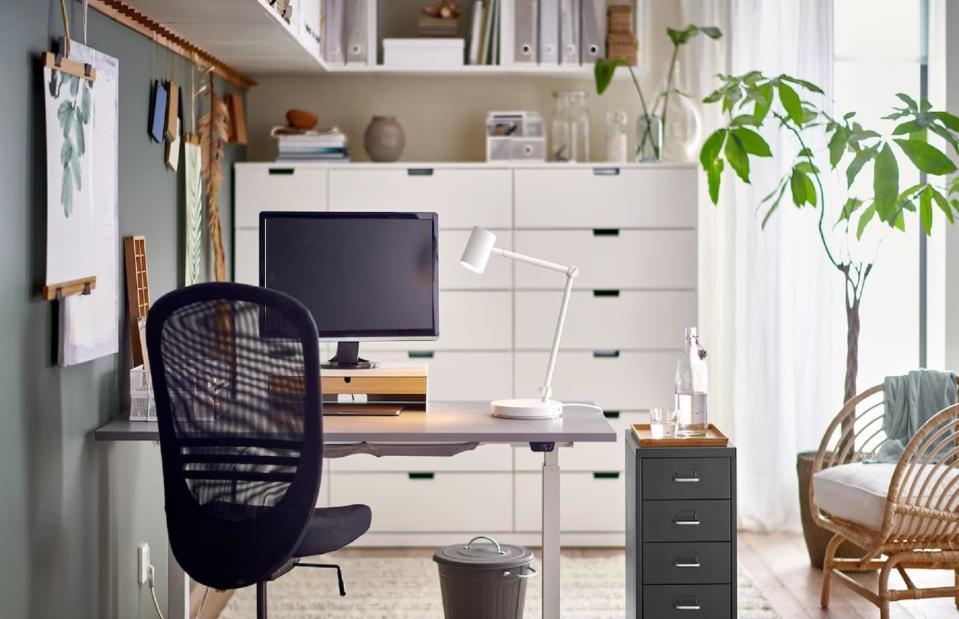
IKEA
During Covid, people across the world began working from home and it seems hybrid working is here to stay. Lakeland’s report found that 55% of us work from home at least once a week, with 21% doing so full-time. Those aged 25 to 44 are the most likely to work at home, with 61% doing so at least once a week. Interestingly, only 11% of Gen Z have a dedicated home office, compared with 32% of those aged 55 to 64. What's more, 69% of home workers have bought something for their office, with a surge in microphone and webcam purchases. The second-most common purchase for those under the age of 25 is a fan.
IN: Coffee machines
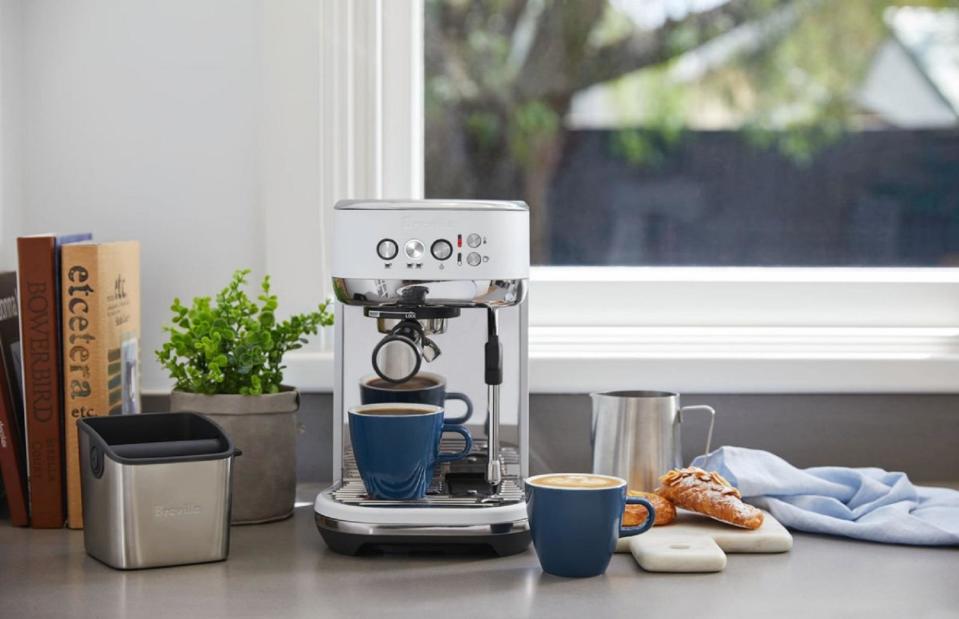
Breville
Right now, there's one home appliance that we all can't live without – the coffee machine! According to Lakeland, coffee machine sales have surged, with 43% of UK homes now owning one. Amazingly, a recent announcement confirmed that coffee is now the UK’s favourite drink, overtaking tea for the first time. The surge might have something to do with the cost savings associated with coffee machines. Homes and Gardens did the maths. If you drink coffee every day, you’ll be spending at least £3, which is £21 per week or £1,095 a year. With the same money, you could buy a year’s supply of coffee beans and a high-end espresso machine and still have money left over.
IN: Cleanerfluencer hacks
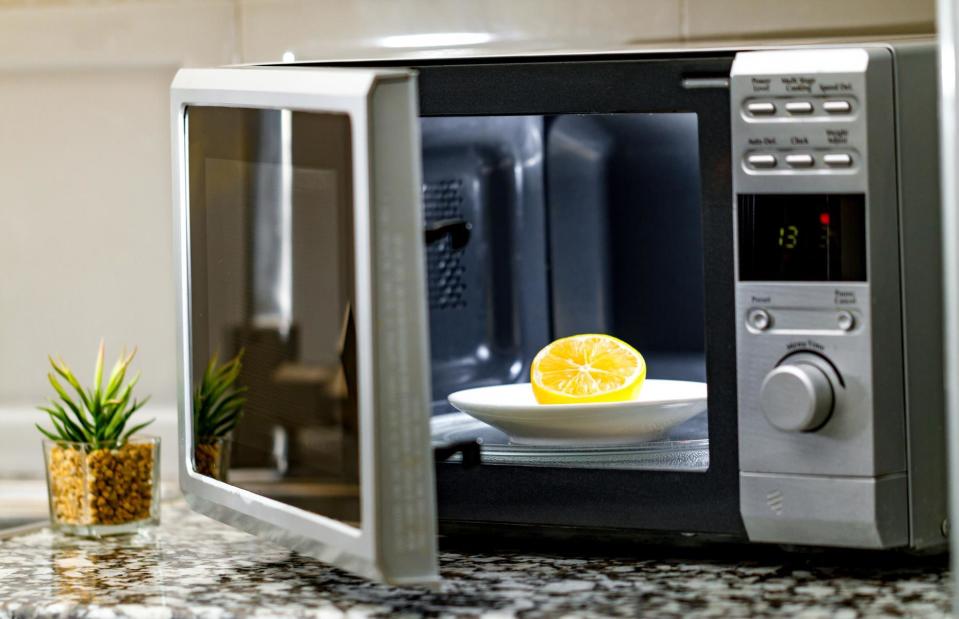
goffkein.pro / Shutterstock
Another trend identified in the report is the UK’s increasing love of DIY cleaning tips, brought about thanks to the rising number of social media cleaning influencers (cleanfluencers, if you will). From Mrs Hinch to Marie Kondo, we can't get enough of cleaning hacks. Lakeland’s report analysed the most popular tips, with 17% of 18- to 24-year-olds regularly using shaving cream to clean mirrors, 15% using dishwasher tablets to clean the oven and 8% admitting to buying denture tablets, solely to whiten their clothes.
IN: Microwaves
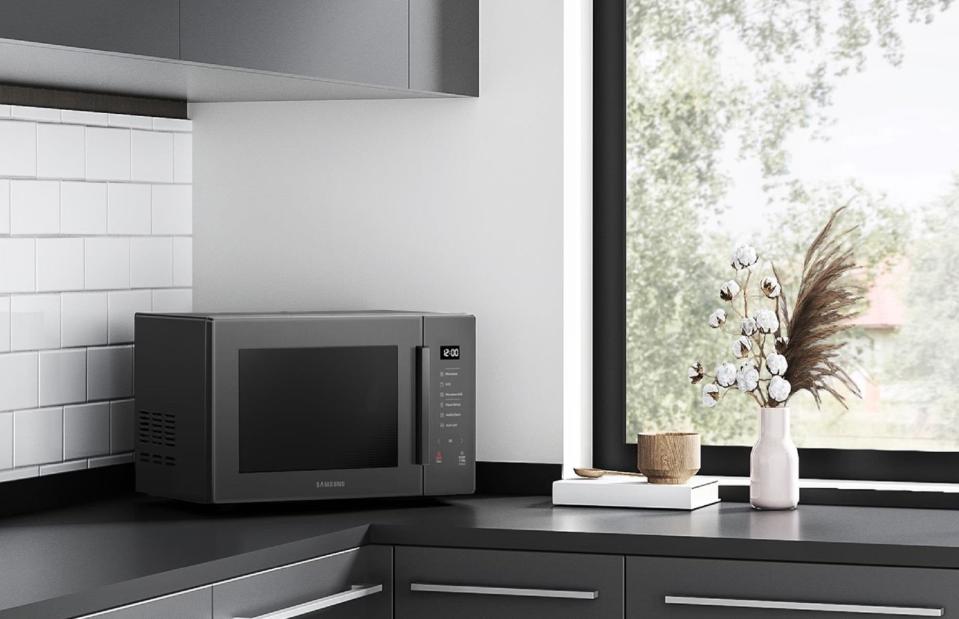
Samsung
Part of the UK's bid to reduce energy and cut bills, more Brits now own a microwave than an oven. The report revealed that 88% of homeowners have a microwave, while 87% have an oven. While a small margin between the two, "this shift is likely down to several factors, including more compact living, particularly in cities, alongside the cost-of-living crisis, as oven usage is more expensive versus its microwave counterpart," the report explains. CNET calculated the costs and found that using a microwave for 365 hours of cooking would set you back £61, compared to £120 for a gas oven and £150 for an electric oven.
IN: Heated airers
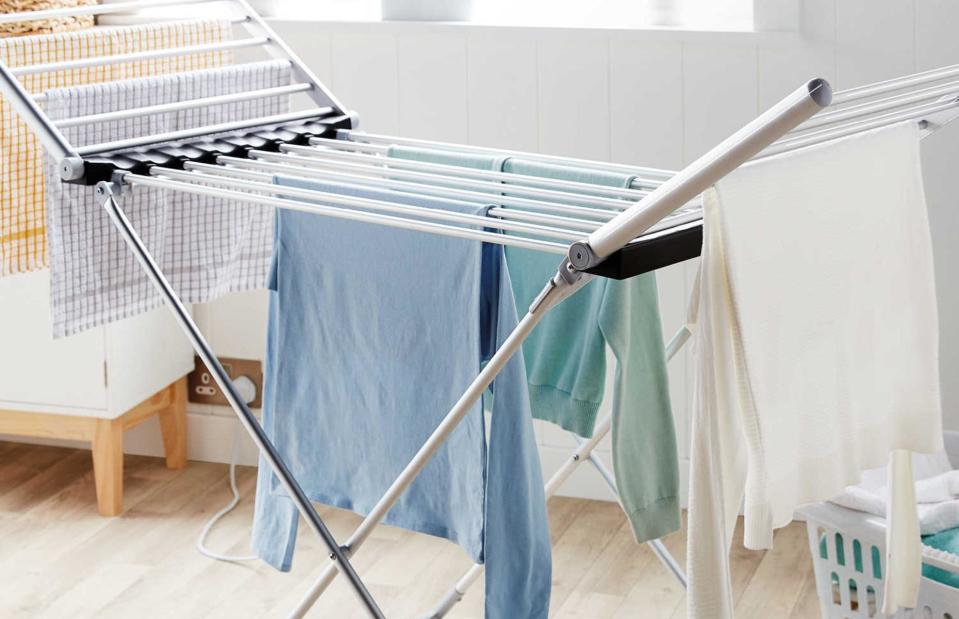
Aldi
Unsurprisingly, homeowners are seeking smart ways of reducing their energy output and that includes cutting laundry costs. In London, the heated airer was named the most popular way of drying clothes, likely due to outdoor space being sparse in the capital. Heated airers are predicted to be a major seller at Lakeland in 2024, with sales already up by 51% this year. Young consumers, in particular, have embraced this money-saving gadget, with 30% of those under the age of 25 owning one. Ben Gallizzi, an energy expert at Uswitch.com, told The Sun: “A 300-watt heated airer would cost 41p to use for five hours under the current energy price cap," while a tumble dryer that uses 2.5kWh of energy per cycle would cost about 68p.
IN: Air fryers
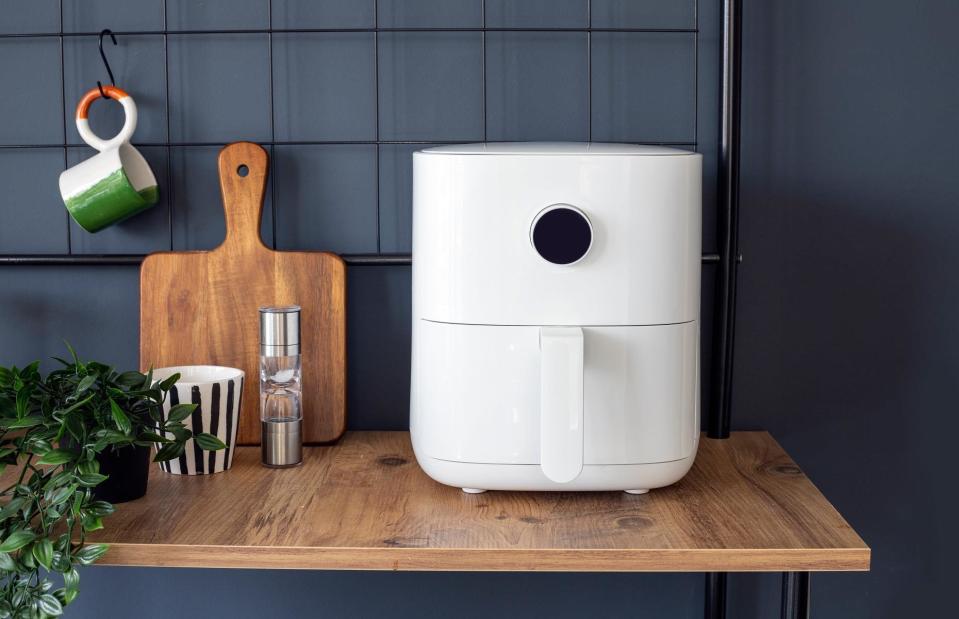
Hazal Ak / Shutterstock
Over the last 12 months, the air fryer has become a kitchen staple. Lakeland found that these clever, energy-saving gadgets – which cook food quickly, using less oil – are outselling deep fat fryers by over 92 to one and 45% of UK homes now have one. Sales of the family-sized dual-basket air fryer grew by 163% in the first six months of 2023. "Few appliances have gone from fad to staple in such a short space of time as the air fryer," Lakeland said. "Over the last year, 30% of households said they had invested in energy-saving gadgets, such as the air fryer, nearly doubling the 16% who said they’d done this in 2022."
IN: Zero waste
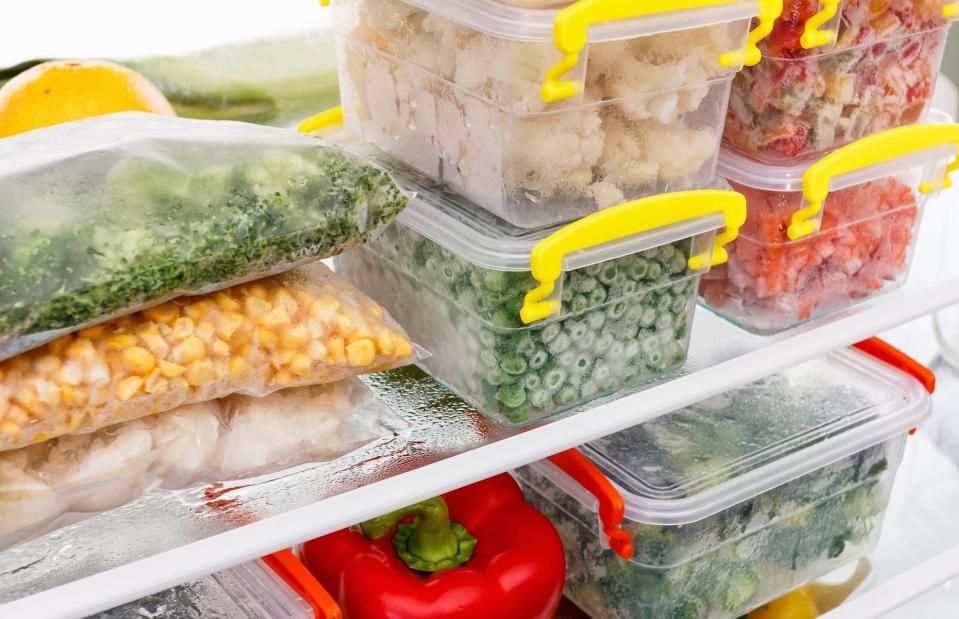
BravissimoS / Shutterstock
Each year 6.4 million tonnes of edible food gets thrown away, with the vast majority being ditched by ordinary families. “Households are responsible for 4.5 million tonnes of waste. This means the average home throws away over 160kg of food every year,” Lakeland explains. Its annual report found that food waste is now one of the biggest household expenses, so it's no wonder Brits are doing their best to limit the amount they throw away. As a result, Lakeland expects to see a massive increase in sales of freezer bags, vacuum pouches, soup and sauce bags, as people freeze leftovers to eat later on – turning them into soups, stocks or new meals entirely.
IN: Heated throws and blankets
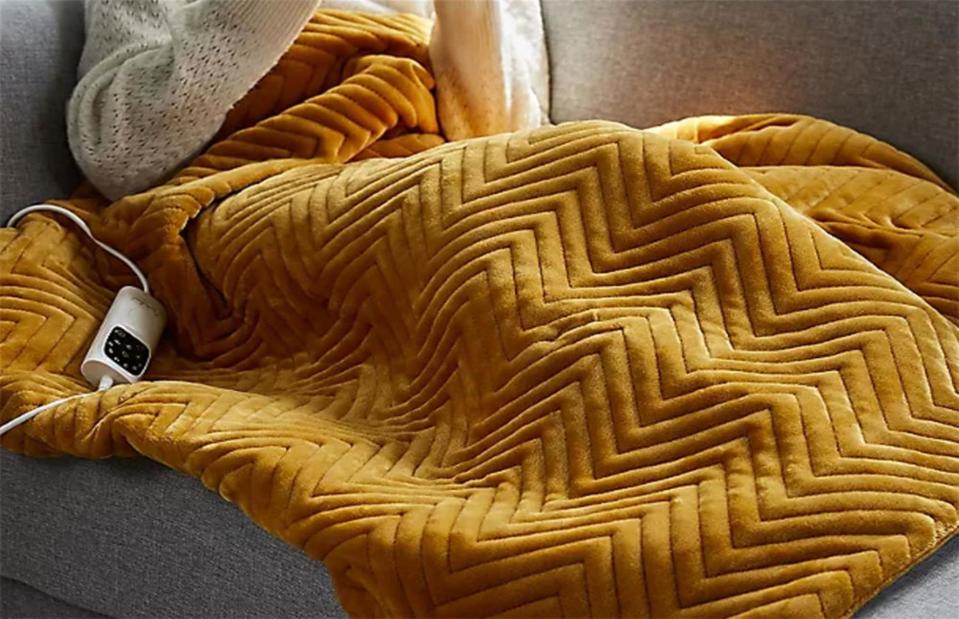
Lakeland
Since energy bills are still soaring, with the energy price cap currently set at £1,834 a year for a typical dual-fuel household paying by direct debit, many are instead opting to heat themselves instead of their homes. That's why Lakeland has seen a sharp rise in the sale of heated throws and blankets. In fact, sales are up by more than 250%. "With running costs from as little as 5p per hour, our product range offers consumers a budget-friendly alternative to using central heating," Lakeland explains.
IN: Batch cooking

Monkey Business Images / Shutterstock
According to Lakeland, consumers have become painfully aware of the expense of cooking vegetables on the hob or baking a cake in the oven. As a result, 61% of us have changed our cooking habits in some way. Millennials, in particular, have embraced batch cooking, with one in three making the most of the oven being on by cooking more than one dish at a time. Batch cooking is also a great way of reducing food waste and grocery bills, further helping homeowners to save money. So, what about the things that are out with consumers in 2023?
OUT: The iron (and ironing board)

Africa Studio / Shutterstock
Has the iron become a thing of the past? Lakeland’s latest trends report revealed that 30% of 18 to 34-year-olds don’t own an iron and never iron their clothes. “Covid lockdowns introduced many people to the comfort of working in leisurewear,” Lakeland explains. “And now most of us have gone back to work – if only for a few days of the week – many have decided there is no need for the formality of a crisply ironed shirt or neatly pressed pair of trousers." The report found that the younger you are, the less likely you are to own an ironing board, so it seems like these once essential laundry room items will soon be obsolete.
OUT: Tablecloths and formal dining
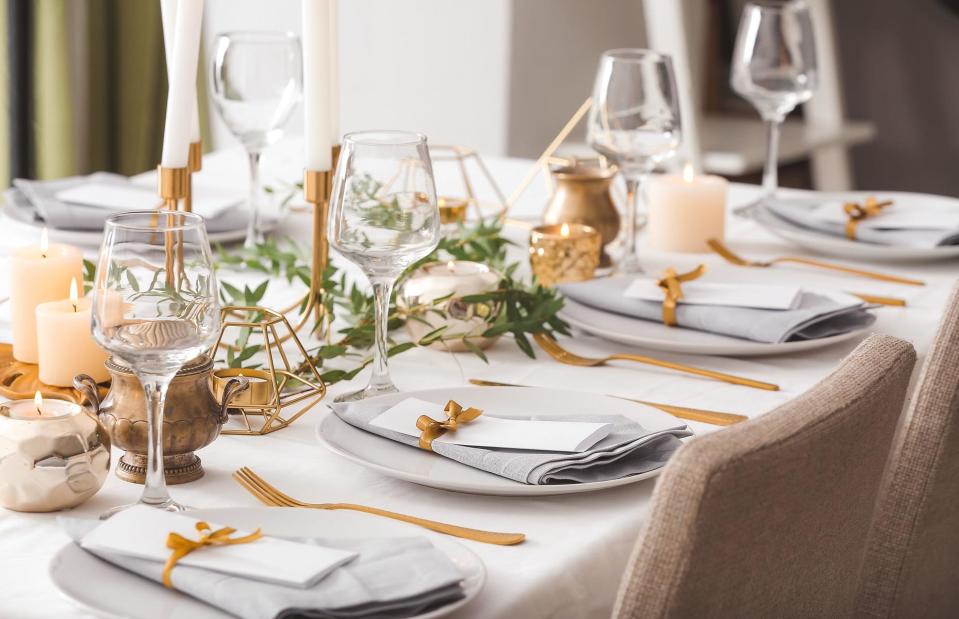
Pixel-Shot / Shutterstock
There's undeniably something lovely about a beautifully decorated dining table, but Lakeland's report found that the "allure of refreshing our dining spaces with new tablecloths has lost its shine." Casual dining is becoming the norm and "as the cost-of-living crisis rolls on, consumers are prioritising their spending on essential kitchenware and home goods," which means many households are finding that their existing tablecloths will do for the time being, leading to a 24% decline in demand.
OUT: Hosting
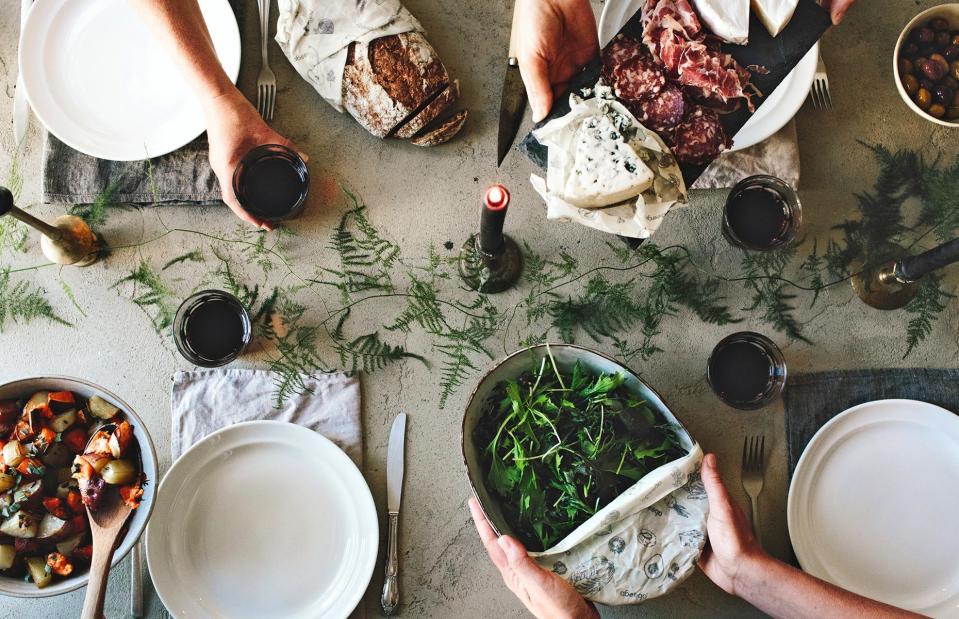
Abeego
The report also found that the decline in formal dining now extends to hosting, with only 21% of those surveyed saying they host dinner parties. However, in positive news, Lakeland found that most people who host are hosting about the same amount as they always have done, with the biggest reason given being “it’s more affordable than eating out” and the second-biggest reason being “‘it’s more casual”.
OUT: The kettle
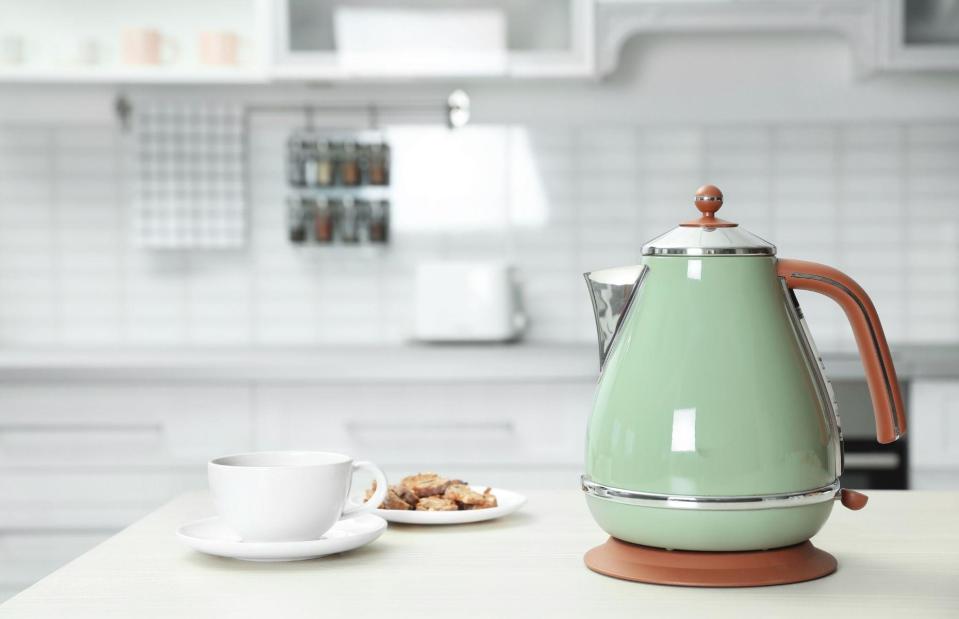
New Africa / Shutterstock
While it's likely the kettle will always be a staple of the home, many have become aware of how expensive they are to run. On average, it costs 1.01p to boil 300ml of water, or enough for a large mug, while boiling a full kettle could set you back a staggering 5.05p. As a result, Lakeland has found that 58% of survey respondents are now only filling the kettle with the exact amount of water, in order to save energy. Interestingly, only 16% of those aged 35 to 44 named the kettle as an essential kitchen gadget, highlighting a decline in popularity.
OUT: Sending Christmas cards

AnjelikaGr / Shutterstock
Although not mentioned in Lakeland's 2023 report, the younger generation is saying no to Christmas cards. Many Millennials and Gen Z see Christmas cards as an unnecessary expense, as well as environmentally wasteful. This might be why, year-on-year, Christmas card numbers are down. According to The Telegraph, "some attribute the decline to a switch in generations, with older groups opting to send out cards to all their former friends and acquaintances around key holidays such as Christmas, whereas younger individuals opt to send fewer cards to close friends." The rise in pared-back Christmases, messaging apps like WhatsApp and electronic greeting cards could also be to blame for the decline.
OUT: Slow cookers and breadmakers
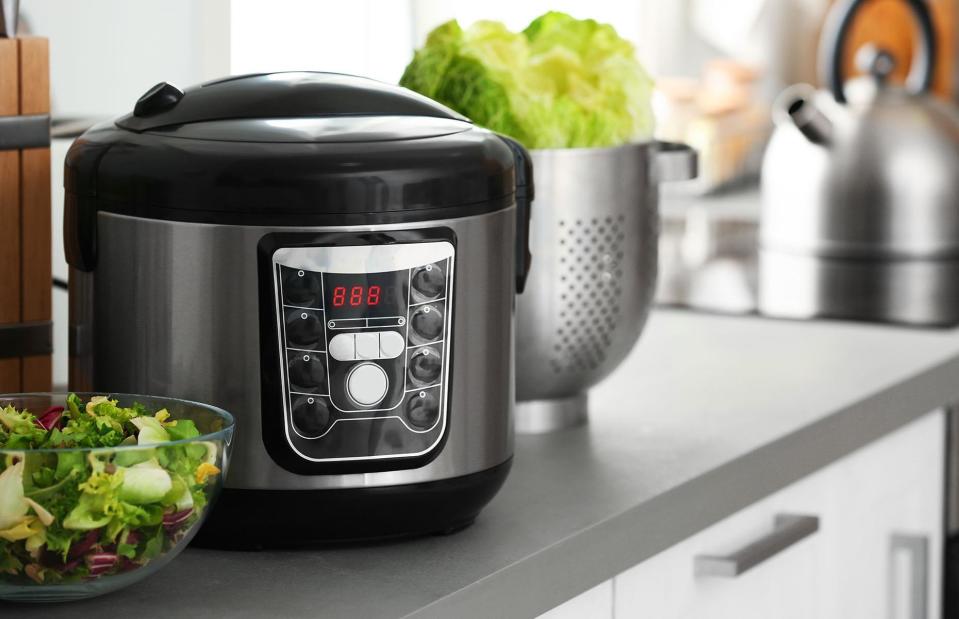
New Africa / Shutterstock
Slow cooking has been popular for years, "favoured by those looking for comforting tender dishes and smaller energy bills", Lakeland explains. However, in 2023, the company has seen a slight dip in sales (3%), as people are instead investing in air fryers over most other appliances. The same can be said for breadmakers. Sales are down by a staggering 37% and there are more appliance casualties, too...
OUT: Niche gadgets, including spiralizers
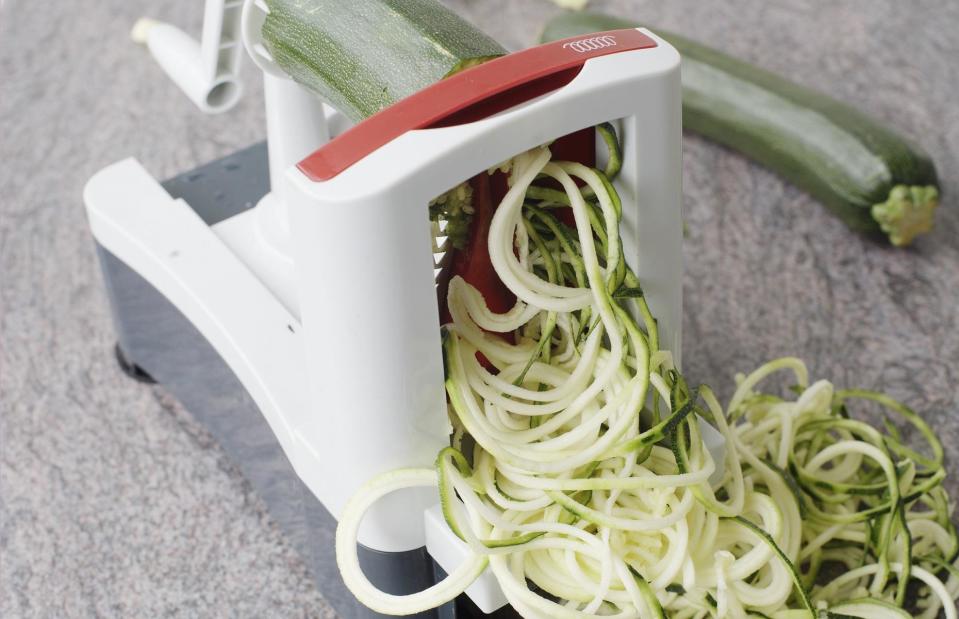
Zju4ka / Shutterstock
The Lakeland Trends Report has shown some big changes in which gadgets we own, and which we don’t. Many niche gadgets, such as the pasta maker, are falling majorly out of favour, as homeowners instead opt to spend their money on essentials or appliances that will save them money in the long run. The once iconic spiralizer has seen one of the biggest falls from grace, with just 7% of UK homes having one, compared to 12% in 2018. Plus, as we’ve slipped back into our busy, post-Covid lives, baking and other hobbies have waned, with customers instead "batch cooking and soup making – activities that really could stand the test of time.”
OUT: DIY
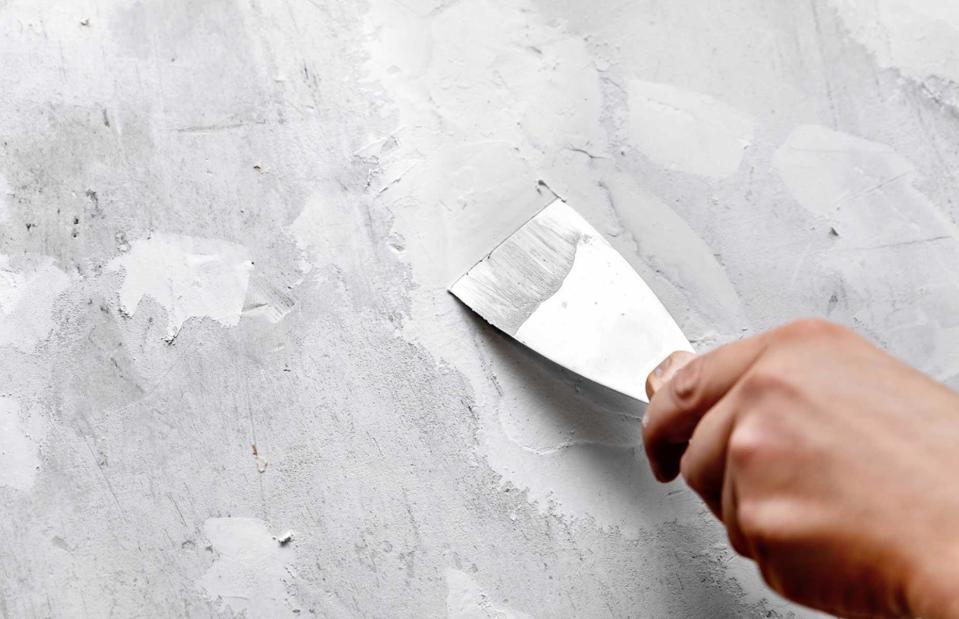
Miriam Doerr Martin Frommherz / Shutterstock
Despite a trend for saving money and cutting costs where we can, DIY is out for 2023. A new study by Black + Decker has discovered that more than a fifth of Brits (21%) are wasting money by hiring tradespeople for simple home improvement jobs. It’s thought that the decline in people doing it themselves is down to laziness and a fear of doing the wrong thing. In fact, 58% of Brits admitted to being completely clueless when it comes to home improvement jobs, while 15% would never attempt DIY without help, not even installing a shelf. The Independent suggests that, as a result, millennials spend an average of £320 a year in "finding a good tradesperson to mend, fix and repair things in their home."
OUT: Standard light bulbs
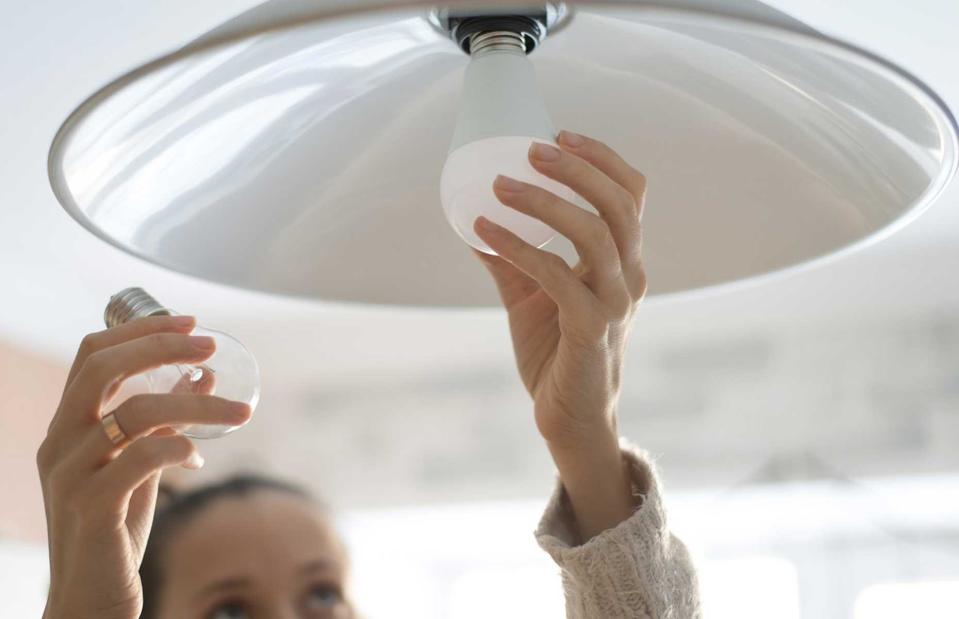
Rasstock / Shutterstock
Did you know that LED lights are far more energy-efficient than incandescent bulbs? In fact, they are 80% more efficient and they turn 95% of their energy into light, whereas older lighting produces a lot of heat, according to Inspire Clean Energy. So it's no wonder Brits are ditching standard light bulbs in favour of energy-saving ones. In fact, 44% of Lakeland customers said they have switched all their lightbulbs to LEDs, in a bid to reduce their energy bills.
OUT: Tumble dryers
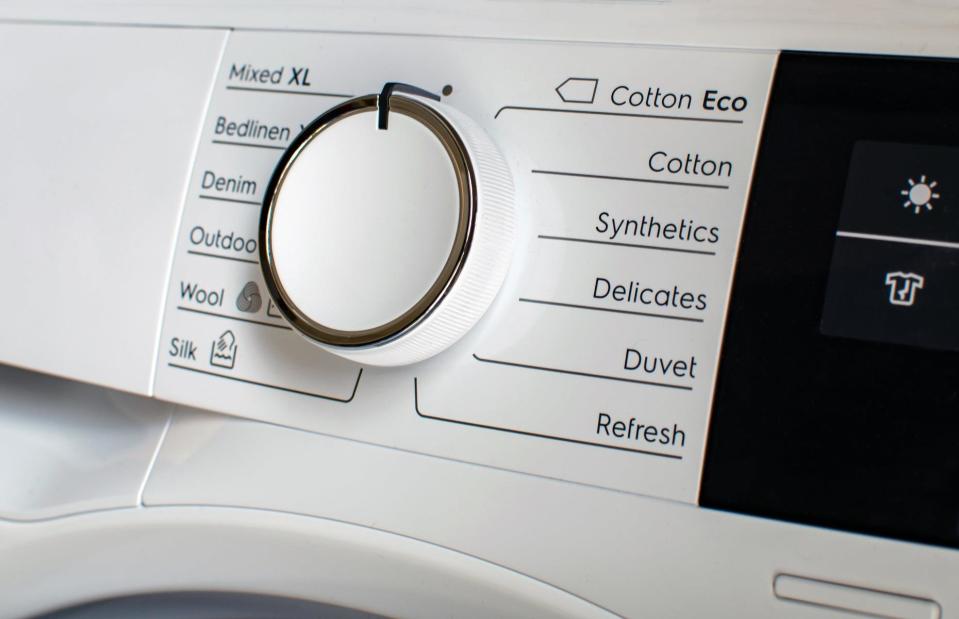
SERSOLL / Shutterstock
Since homeowners are seeking ways of saving money around the home, 38% of those surveyed by Lakeland said they have tried to cut down on using their tumble dryer since the cost of living crisis began. In Northern Ireland, that figure was 48% and in Wales it was 46%, “due to both price and environmental factors”. It's also positive to see that 62% of those surveyed said they dry their clothes outside – a resource that is both free and enduring. We wonder how modern home trends will change in the next 12 months. Watch this space...
Reference links to original sources may not appear in this version – to view the piece in full, please see www.loveproperty.com.


